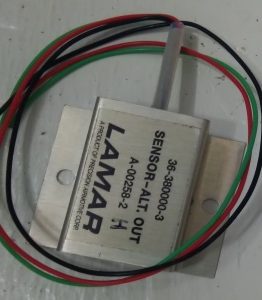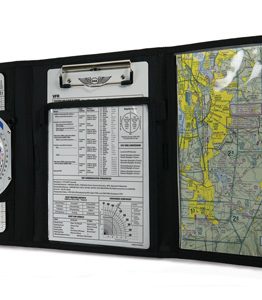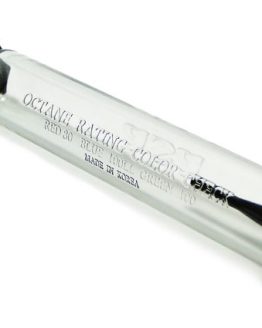Flying, and generally, a career in aviation can be quite rewarding. For the lot that has taken an interest in one of the multitudes of careers within the aviation field, most especially being a pilot, at one point you have wondered what requirements you should meet before pursuing such a career.
We attempt to detail the requirements required for one to gain a pilot license in Kenya, starting from the Student Pilot License (SPL) to the Airline Transport Pilot License (ATPL). We will also touch on other licenses; dispatch, air traffic control, flight engineers, aircraft maintenance, cabin crew, and their requirements.
The Kenya Civil Aviation Authority (KCAA) is the government body tasked with, among its mandates, the issuance and renewal of licenses.
Student Pilot License (SPL)
This license is used for training purposes and can also be used to gain the necessary hours to qualify a pilot to renew their license (PPL, CPL, and ATPL) in case they have expired. The SPL is the first step in gaining any pilot license.
Requirements:
- Be at least sixteen years of age.
- Demonstrate the ability to read, speak, write, and understand English.
- Be in possession of a valid Class 2 Medical Certificate.
Private Pilot License (PPL)
The PPL is a foundation license on course to a Commercial Pilot’s License (CPL). It allows the holder to fly for leisure during the day or night (only if one has a Night Rating) under visual flight rules and carry passengers. You cannot fly for paid compensation or hire.
Requirements:
- Be at least seventeen years of age for a license other than the operation of glider or balloon.
- Be at least sixteen years of age for a license in a glider or balloon.
- Be in possession of a valid Class 2 Medical Certificate.
- Pass the required PPL knowledge test.
- Receive an endorsement for the knowledge test in the student pilot’s logbook from an authorized instructor.
- Receive flight training and a logbook endorsement from an authorized instructor.
- Pass a practical test – PPL (General Flight Test) done by an authorized examiner.
- Pass the English Language Proficiency Exam with
either of the following results;
- Operational Level (Level 4); Valid for 3 years i.e. should be evaluated once every 3 years.
- Extended Level (Level 5); Valid for 6 years
- Expert Level (Level 6); Valid for Life
Commercial Pilot License (CPL)
The CPL (A) allows the holder to fly for hire or compensation.
Requirements:
- Be at least eighteen years of age.
- Be in possession of a Class 1 Medical Certificate.
- Hold a Kenyan Private Pilot License or meet the requirements for application for military licenses; or conversion of foreign licenses.
- Receive a logbook endorsement from an authorized instructor.
- Pass the required knowledge test.
- Receive the required training and a logbook endorsement from an authorized instructor.
- Pass the required practical test (General Flight Test) on the areas of operation that apply to the aircraft category and class rating sought.
- Pass the English Language Proficiency exam and
attain either of;
- Operational Level (Level 4); Valid for 3 years
- Extended Level (Level 5); Valid for 6 years
- Expert Level (Level 6); Valid for Life
Air Transport Pilot License (ATPL)
The ATPL is the highest license acquired during pilot certification. It allows the holder to act as a pilot in command on scheduled air carriers’ aircraft. One must hold an ATPL before acting as a pilot in command in an aircraft with 9 or more passenger seats.
Requirements;
- Be at least twenty-one (21) years of age.
- Have a valid Class 1 Medical Certificate issued under KCARs.
- Meet at least one of the following requirements;
- Hold a valid and current Commercial Pilot License and an instrument Rating;
- Meet the experience requirements for Conversion of the Kenyan Military Pilots’ License to qualify for a Commercial Pilot License, and an Instrument Rating if the person is a rated military pilot or former rated military pilot; or
- Hold either a foreign Airline Transport Pilot License or a foreign Commercial Pilot License and an instrument rating issued by another contracting state.
- Pass a knowledge test on the applicable aeronautical knowledge areas done during their Flight Instruction that apply to the aircraft category and class rating sought.
- Meet the applicable aeronautical experience requirements of this sub-part before applying for the practical test.
- Pass the practical test on the applicable and required areas of operation that apply to the aircraft category and class rating sought.
- Pass the required practical test for the specific aircraft type to be endorsed on the license.
- Pass an Instrument Rating test.
- Pass the English Language Proficiency exam and
attain either of;
- Operational Level (Level 4); Valid for 3 years
- Extended Level (Level 5); Valid for 6 years
- Expert Level (Level 6); Valid for Life
Conversion of Foreign Flight Crew License
This process is applied for by any pilot with a foreign pilot’s license and would wish to fly in Kenya on a long term basis.
You must hold:
- A current and valid foreign license (including a radio license).
- A valid, relevant medical certificate from a Kenyan designated medical examiner.
- Any class or type ratings you intend to fly with this conversion must also be current and valid.
- Proof of the English language proficiency.
- Results of a passed composite conversion exam for the license being applied for.
- The required flying experience as substantiated by the flying logbook.
- The applicable aeronautical experience requirements for each license being sought.
- For a Commercial Pilot License or Airline Transport Pilot License or Multi-crew Pilot License you shall not be eligible for grant of a license unless there is included in the license an aircraft type rating for either pilot-in- command or co-pilot respectively.
- An Instrument Rating for CPL (depending on the type to be endorsed on the license) and ATPL.
Ground Instructor License
This license allows the holder to offer various kinds of ground instruction to those seeking pilot licenses and ratings. It is issued with ratings which dictates the exact areas the holder can instruct.
Requirements;
- Be at least eighteen years of age.
- Demonstrates the ability to read, speak, write,
and understand English in accordance with the language proficiency requirements
and obtain either of the following ratings;
- Operational Level (Level 4); Valid for 3 years
- Extended Level (Level 5); Valid for 6 years
- Expert Level (Level 6); Valid for Life
- Pass a knowledge test on the fundamentals of instructing. The knowledge test specified is not required if the applicant holds a flight instructor rating.
- Pass a knowledge test on the aeronautical knowledge areas specified in PPL, CPL and ATPL.
- A ground instructor license shall be issued with
either one of the following ratings;
- Basic;
- Advanced;
- Instrument; or
- Basic and Instrument
- Advanced and Instrument
- For an applicant for a ground instructor license to acquire the above ratings, he or she is required to hold or have held a Commercial Pilot License or Airline Transport Pilot License (i.e. these licenses could be valid or expired) as appropriate.
- If an applicant does not hold the above
licenses, then he/she should pass the following;
- Basic ground instructor rating; aeronautical knowledge requirements for Commercial Pilot License
- Advanced ground instructor rating; aeronautical knowledge requirements for Airline Transport Pilot License
- Instrument ground instructor rating; meet the requirements of either (i) or (ii)
- Be a holder of a valid instrument rating
Air Traffic Controllers License
Air traffic controllers are responsible for coordinating the safe, orderly, and expeditious flow of air traffic in the sky and on ground, that is, at manned airports.
Requirements;
- Be at least 21 years of age.
- Hold a current Class 3 Medical Certificate.
- Have completed an approved training course and not less than three (3) months’ satisfactory service engaged in the actual control of air traffic under the supervision of an appropriately rated air traffic controller (OJT).
- Pass the English Language Proficiency exam and
attain either of;
- Operational Level (Level 4); Valid for 3 years
- Extended Level (Level 5); Valid for 6 years
- Expert Level (Level 6); Valid for Life
- Have met the training, experience, and
assessment requirements for at least one air traffic controller rating as
follows:-
- Aerodrome
Control Rating; to provide or to supervise the provision of Air traffic
Service for all traffic on the maneuvering area of an aerodrome and all
aircraft flying in the vicinity of the aerodrome for which the license holder
is rated. A tower (with an Aerodrome or ‘Airport Control’) rating would tend to
be qualified in all aspects of tower operations including:
- Clearance Delivery (issuing IFR clearances as issued by Approach Control or assigning transponder codes)
- Ground Control (issuing clearances for aircraft to move to/from the apron and runway areas via a taxiway system
- Air Control (issuing clearances to aircraft in the runway environment and in the vicinity of the airport)
- Approach Control Procedural Rating; to provide or to supervise the provision of air traffic control service for arriving, departing or transiting controlled flights for the aerodrome or aerodromes for which the license holder is rated, within the airspace or portion thereof, under the jurisdiction of the unit providing approach control service, or
- Approach Radar Control Rating; to provide or supervise the provision of approach control service with the use of radar or other surveillance systems for the aerodrome or aerodromes for which the license holder is rated, within the airspace or of the airspace, under the jurisdiction of the unit providing approach control service, or Terminal Controllers handle traffic in the radar terminal area (30-50 miles) from an airport.
- Area Control Procedural Rating; to provide or supervise the provision of air traffic control service to controlled flights in control areas under its jurisdiction within the control area or portion of the control area, for which the license holder is rated; or
- Area Radar Control Rating: to provide or supervise the provision of area control service with the use of radar, within the control area or portion of the control area, for which the license holder is rated.
- Aerodrome
Control Rating; to provide or to supervise the provision of Air traffic
Service for all traffic on the maneuvering area of an aerodrome and all
aircraft flying in the vicinity of the aerodrome for which the license holder
is rated. A tower (with an Aerodrome or ‘Airport Control’) rating would tend to
be qualified in all aspects of tower operations including:
Aircraft Maintenance Engineer License (AMEL)
To be a holder of an AMEL one should;
- Be at least eighteen years of age.
- Demonstrate the ability to read, speak, write, and understand the English language.
- Comply with the following requirements
prescribed for the rating sought;
- Knowledge;
- Experience; and
- Skill, pass all of the prescribed examinations for the rating sought, within five years.
Flight Operations Officer/Flight Dispatchers’ License
An applicant for a flight operations officer license shall;
- Be at least twenty-one (21) years of age.
- Attend training in one of the Approved Training Organizations (ATO) proven by a certificate attachment.
- Demonstrate the ability to read, speak, write, and understand the English language in accordance with the language proficiency requirements.
- Pass a knowledge.
- Present documentary evidence satisfactory to the Authority that the applicant has the experience or training. A total of two years’ service in any one or in any combination of the capacities specified below provided that in any combination of experience the period served in any capacity shall be at least one year;
- A flight crew member in commercial air transport; or
- A meteorologist in an organization dispatching aircraft in commercial air transport; or
- An air traffic controller or technical supervisor of flight operations officer or air transportation flight operations systems;
- At least one year as an assistant in the dispatching or aircraft used in commercial air transport; or
- Has satisfactorily completed an approved course training in a flight operations.
- Have served under the supervision of a flight operations officer for at least 90 days within the 6 months immediately preceding the application.
Cabin Crew Member Certificate (CMC)
An applicant for cabin crew member certificate shall;
- Be at least eighteen years of age.
- Be able to read, speak and understand the English language sufficiently to adequately carry out the responsibilities of a cabin crew member.
- Have completed a course of training approved by the Authority proven by a letter from KCAA confirming the approval.
- Have passed a knowledge and practical tests within the last six months preceding the date of application.
Flight Radio Telephony Operators’ License
This license is held in conjunction with another flight crew license and allows the holder to operate an aircraft radio station in a Kenyan registered aircraft.
Requirements;
- Be at least seventeen (17) years of age.
- Have the ability to read, speak, write and understand the English language.
- Have undergone the relevant training and passed the written knowledge test for a radio telephony operator license.
- Demonstrate a level of knowledge appropriate to the privileges granted to a holder of a flight radio telephone operator license in an oral examination done by the KCAA examiners.



